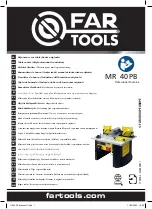
24-port NWay Ethernet Switch User’s Guide
Switch Management and Operating Concepts
53
against a link or port failure – not a switch failure or
removal. For example, a failure of switch A would
isolate LAN 1 from connecting to LAN 2 or LAN 3.
Port Aggregation
Port aggregation is used to combine a number of ports together
to make a single high-bandwidth data pipeline. The participating
parts are called members of a link aggregation group, with one
port designated as the
master port
of the group. Since all
members of the link aggregation group must be configured to
operate in the same manner, the configuration of the master
port is applied to all members of the link aggregation group.
Thus, when configuring the ports in a link aggregation group, you
only need to configure the master port.
The DES-3326 supports 6 link aggregation groups, which may
include from 2 to 8 switch ports each, except for a Gigabit link
aggregation group which consists of the 2 (optional) Gigabit
Ethernet ports of the front panel. These ports are the two
1000BASE-SX, -LX –TX or GBIC ports contained in a front-panel
mounted module.
Note:
The DES-3326 allows the creation of up to 6 link
aggregation groups, each group consisting of up of up to 8
links (ports). The aggregated links must be contiguous
(they must have sequential port numbers), except the two
(optional) Gigabit ports – which can only belong to a
single link aggregation group.
















































